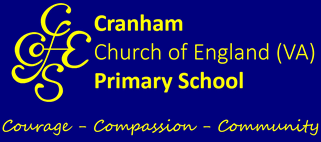Current Affairs Collective Worship

Cranham Primary has a strong commitment to develop children’s critical literacy skills, and for the past two years we have teamed up with Picture News to help develop our children’s understanding and appreciation of the news. We discuss current affairs during collective worship every Thursday morning – this is carried out separately for KS1 and KS2 so that discussions are age-appropriate.
As a Church of England school, our assembly focus always has a spiritual element, and as well as discussing how news makes us feel, we ensure we talk about our role and our influence in making a difference to the world around us, either right now or in the future, through courageous advocacy. Shifting our focus from ourselves to others and the world around us is an important aspect of spiritual development: the four domains of spirituality are often described as a progression from ‘self’, to ‘others’, to ‘beauty’ (nature & the world) and finally ‘beyond’ (transcendence). Our children move from wanting to know what happens in MY world to what is happening in THE world and their place in it. They are not merely learning facts about the world around them but developing a sense of self, awe, responsibility and empowerment.
The news story we have discussed on Thursday will always be shared with parents in Friday’s newsletter so that you can continue these conversations at home. Current affairs discussions often initiate strong feelings and opinions alongside many further questions, and it is important that, at home, you are able to continue to help your child make sense of the world around them. Having age-appropriate conversations with them about the news keeps them interested and informed about what’s happening in the world…and you too!
By having regular conversations about the news, you are able to share a whole range of topics and together make more sense of different events, issues, and stories. There are no rules or script to follow but you might want to watch, listen, read, and discuss the news selectively. Some significant news stories can be frightening, and you will need to consider what your child can cope with and whether they are developmentally ready to understand certain events. For example, you might decide to listen to the news rather than watch it as there may be images they might find upsetting. Talking about major headlines and current affairs is important so that children grow up as global citizens, but it’s also important to share a variety of fun and exciting news stories from the worlds of sport, entertainment, music, science, etc as well as local news closer to home.
Here are some quick tips:
- Initiate discussions about the news using the Picture News images on our newsletter.
- Read and watch some news stories together from different sources.
- Find out what your child knows about the news and explore their understanding.
- Listen to what your child says and value their opinions.
- Explain simply and in a way that makes sense to them.
- Promote a habit of enquiry and make asking questions your child’s default setting.
- Help your child spot fake news and show them how to fact-check.
- Develop a news habit by accessing the news daily.
- Defuse bad news and offer reassurance.
- Protect your child from distressing and disturbing news.
- Monitor your child’s exposure to the news.
Discussing the news of the day doesn’t have to be formal but can be done naturally and casually in everyday moments such as on the way to school or preparing a meal. The important thing is to keep the conversation going about the news and make it a feature of your daily lives.
By working together, we can help the children of Cranham Primary become critical consumers of the news so that they are ‘news savvy’, articulate, and confident citizens, with a clear sense of the importance of their role within the world.
